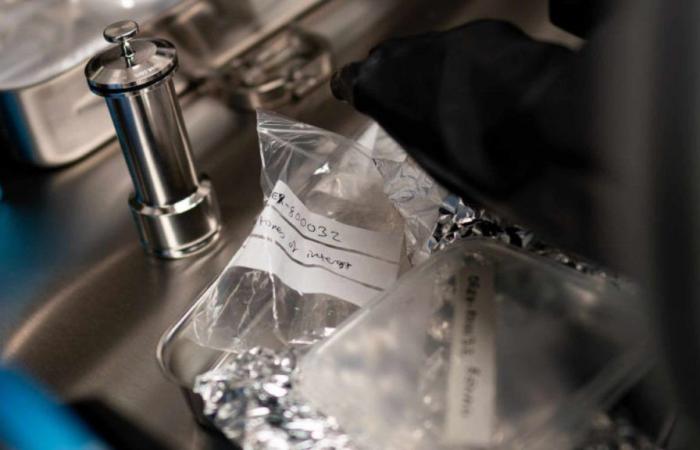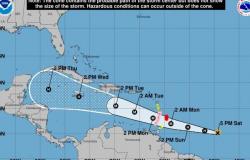Bennu, the asteroid 114 million kilometers from Earth, may be a fragment of an ocean planet that no longer exists in the solar system. The latest analysis of the material brought back by NASA’s OSIRIS-REx mission revealed phosphates and other elements that suggest contact with liquid.
The 120 grams of regolith from the asteroid Bennu arrived on Earth in September 2023. We had to wait a few months to access all of the material due to an unexpected problem with the screws that secured the container capsule. Until February 2024, NASA officially revealed the first native asteroid dust in history. He then proceeded to package 30% of it for distribution to scientists around the world.
The article published in the magazine Meteoritics & Planetary Science It is one of the first external analyzes of the Bennu material. It confirms some initial considerations, such as the fact that it is made up of scarce carbonates and silicates. It also provides additional information, such as the presence of phosphates rich in magnesium and sodium, elements that can dissolve in water.
Together, all of these chemical signatures suggest that Bennu was part of a watery environment. For example, some clay materials on the asteroid, such as serpentine, are similar to rocks found in the area where the Earth’s mantle makes contact with water. Based on its chemical history, this space object is likely to have been part of a world with liquid water.
“The composition and mineralogy of the sample indicate substantial aqueous alteration. We find different isotopic compositions of hydrogen, nitrogen and oxygen. Part of the material we analyzed is enriched in fluid-mobile elements,” the report states.
Antarctica contains a library of ancient meteorites that are endangered by global warming
Antarctica contains up to 60% of the meteorites studied on Earth. This catalog of celestial samples is in danger due to climate change.
Water in the solar system
According to the latest official information available, the only planet in the solar system with liquid water today is Earth. We know that Mars had it and there is strong evidence that Venus does too, but due to different circumstances they are now sterile sites with traces of this frozen substance at their poles. Meanwhile, there are signs of internal seas of water on the main moons of Jupiter and Saturn. The most recent study on the solar neighborhood indicates that even Pluto could host an ocean inside.
The solar system is 4.568 million years old. Bennu dating estimates it has 4.5 billion years of space history. Although the rock was not formed exactly with the conformation of the star, it was born in the first million years, in a stage full of cosmic turbulence. Therefore, the scientists in charge of investigating the asteroid believe that the body it came from no longer exists.
Bennu is a carbon-rich asteroid that is just 500 meters wide at its equator. It passes close to Earth every six years. Because of its physical characteristics, NASA believes that the asteroid broke away from a larger asteroid 2 billion years ago. Because it has not undergone any substantial changes, Bennu is a kind of space “time capsule.” Analyzing samples of its regolith is like looking at the footprints of the beginning of the solar system.






